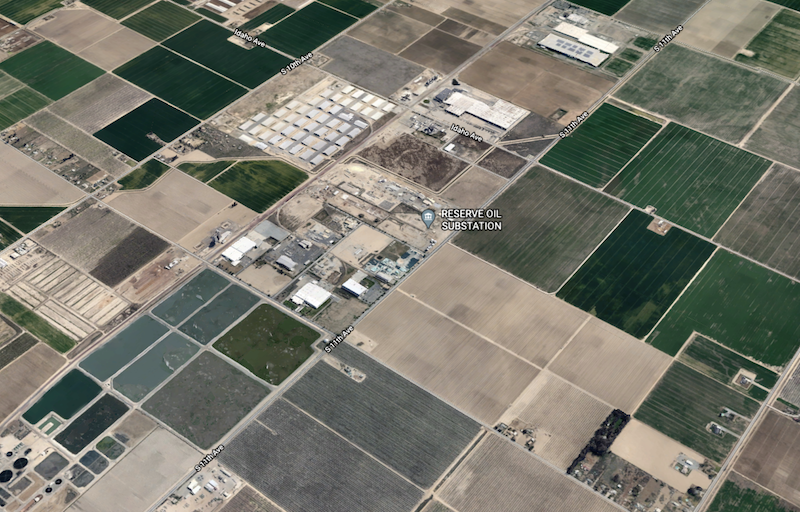
The Kings Industrial Park near Hanford has ushered in new expansions for various businesses that are expected to follow into 2021.
Written by Frank Lopez
When The Business Journal was putting together its economic forecasts for 2020, not many would have predicted the onset of a world-disrupting pandemic, but here we are.
In the span of eight months, Covid-19 has stilted world economies, impacted virtually all industries, forced companies to navigate new protocols and business strategies, and sadly closed down many businesses — both small and large alike.
As is the case with any other area, Kings County has also suffered the fallout of Covid-19, however, there is still some silver linings in the clouds.
The county’s industrial and farm sectors are still going steady and even expanding, and more people are looking to move into new homes.
Lance Lippincott, director of the Kings County Economic Development Corp. (EDC), noted expansions in the Kings Industrial Park and Nichols Farms, which was highlighted the EDC’s annual report for expanding with new products on store shelves.
This year, the county introduced a budding industry to its business fabric: cannabis. Two cannabis dispensaries opened up in Lemoore and one will be coming soon in Hanford.
There has also been interest from companies based in Los Angeles, as well as from Inland Empire and Northern California, trying to set up in the area.
“We are seeing a lot business movement from the L.A. basin area, and Inland Empire as they fill up and are being pushed north into Kings, Tulare and Fresno,” Lippincott said. “We are starting to see industries from out of the area relocate and take advantage of the more inexpensive land and ready workforce.”
The retail scene in Kings County was hit incredibly hard, especially now that Kings County has been knocked back into the restrictive purple tier from red along with Fresno County. Lippincott said it will be hardest on the smaller “mom and pop” stores.
Though agricultural industries were considered essential, ag companies in the area still felt a hit both to demand and workforce.
Lippincott did mention three large-scale manufacturing projects that could potentially be coming to the county: two will be in more traditional ag manufacturing, and one of them is a bioenergy company.
Since it is only speculative at this point, more details about the companies could not be revealed.
“Right now we are just trying to stay as flexible and agile as possible. Its hard to predict anything, but it will be interesting to see how this shakes out,” Lippincott said.
Amory Marple, CEO and executive director of the Hanford Chamber of Commerce, said that when Covid-19 hit, businesses had to shift from expansion mode to survival mode.
Small businesses, including “mom and pop” shops that didn’t have a large online presence, and local restaurants that weren’t set up with UberEats or GrubHub, had to reshape their business structures to keep going.
Marple said that businesses in the Hanford Mall were hit really hard.
Even in the midst of a pandemic, however, new businesses are expected to open soon.
Marple said that there are going to be about eight stores opening up in the downtown area including a few retail businesses, a flooring shop, salon, clothing store and some eateries.
“I think going into December and January, we might not see something until the spring after this wave of new business,” Marple said.
Because it is likely that we will still be in the throes of the pandemic, Marple says the chamber will be brainstorming ways to keep assisting businesses.
Another bright spot — more people are looking to buy homes in the area.
Not surprisingly, like in most parts of the state, there is not a large inventory of homes, so a home for sale in Kings County sells quickly.
Thomas Curtis, an assistant team leader for Keller Williams Realty in Kings County, said even after the onset of the virus, sales are steady as ever.
“It’s gotten a lot busier actually,” Curtis. “The end of 2019 and beginning 2020 was great. I’ve run the numbers every month from February until now, and the numbers are solid. We have a very low inventory and prices have sky rocketed up.”
Curtis said that homes with a price of about $250,000 in October 2019 went up to around $290,000 last month.
Curtis said he predicts there will be adjustments to the housing market once forbearances spurred by Covid-19 catch up with homeowners. However, with people having a lot of equity in their homes, many will sell.
Though homebuilders are constantly building new homes, Curtis said they can’t build them fast enough.
“I think [the first quarter] of next year is still going to be consistent with such low inventory and such good interest rates, but we just know what it’s going to look like a year or two from now with forbearances.”








